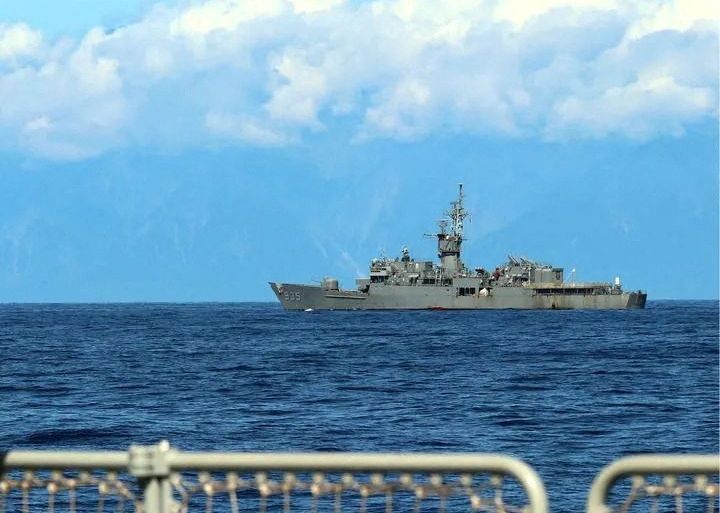China announces new military exercises near Taiwan
The Chinese military announces a new round of drills, keeping up the pressure on Taiwan’s defences over Nancy Pelosi’s visit.

China has announced more military drills in the seas and airspace around Taiwan, a day after the scheduled end of exercises launched in protest against US House Speaker Nancy Pelosi’s visit to the self-ruled island.
China’s Eastern Theatre Command said on Monday that it would conduct joint drills focusing on anti-submarine and sea assault operations – confirming the fears of some security analysts and diplomats that Beijing would continue to maintain pressure on Taiwan’s defences.
Keep reading
list of 4 itemsTaiwan accuses China of ‘simulating’ invasion as drills continue
Xi tested as Chinese nationalists bristle at Pelosi Taiwan visit
China sanctions US House Speaker Nancy Pelosi after Taiwan trip
Pelosi’s visit to Taiwan last week infuriated China, which regards the self-governing democracy as its own and responded with test launches of ballistic missiles over Taipei for the first time, as well as cutting some communication lines with Washington.
The duration and precise location of the latest drills were not yet known, but Taiwan has already eased flight restrictions near the six zones where China had carried out its previous exercises.
Shortly before the latest drills were announced, Taiwan President Tsai Ing-wen met visiting St Vincent and the Grenadines Prime Minister Ralph Gonsalves, telling him she was moved by his determination to visit despite China’s military pressure.
“Prime Minister Gonsalves has expressed in recent days that the Chinese military drills would not prevent him from visiting friends in Taiwan. These statements have deeply touched us,” Tsai said at a welcome ceremony for Gonsalves in Taipei.
‘Simulating attacks’
Beyond the firing of 11 short-range ballistic missiles during the four earlier days of exercises, Chinese warships, fighter jets and drones manoeuvred extensively around the island.
The exercises tested “tactics of systems warfare under information-based conditions, and honed and improved the capabilities to destroy crucial island targets with precision strikes”, Xinhua news agency quoted air force officer Zhang Zhi as saying.
Taiwan’s defence ministry said on Sunday that it detected a total of 66 aircraft and 14 warships conducting naval and air exercises. The island has responded by putting its military on alert and deploying ships, planes and other assets to monitor Chinese aircraft, ships and drones that are “simulating attacks on the island of Taiwan and our ships at sea”.
Shortly before those drills ended on Sunday, about 10 warships each from China and Taiwan manoeuvred at close quarters around the unofficial median line of the Taiwan Strait, the Reuters news agency reported, citing a person familiar with the situation who is involved with security planning.
The island’s official Central News Agency meanwhile reported that Taiwan’s army will conduct live-fire artillery drills in southern Pingtung County on Tuesday and Thursday in response to the Chinese exercises.
The drills will include snipers, combat vehicles, armoured vehicles as well as attack helicopters, said the report, which cited an anonymous source.
In Beijing, the Chinese defence ministry maintained its diplomatic pressure on the United States, defending its shelving of military-to-military talks in protest against Pelosi’s visit.
“The current tense situation in the Taiwan Strait is entirely provoked and created by the US side on its own initiative, and the US side must bear full responsibility and serious consequences for this,” defence ministry spokesman Wu Qian said in an online post.
“The bottom line cannot be broken, and communication requires sincerity,” he said.
Pentagon, State Department and White House officials condemned China’s responses, describing it as an irresponsible overreaction. Security analysts and diplomats also say China’s cutting off some of its few communication lines at a critical moment only raises the risk of an accidental escalation over Taiwan.
In Canberra, Australian Foreign Minister Penny Wong called for a cooling of tensions.
“Australia continues to urge restraint, Australia continues to urge de-escalation, and this is not something that solely Australia is calling for, and the whole region is concerned about the current situation, the whole region is calling for stability to be restored,” Wong told reporters.